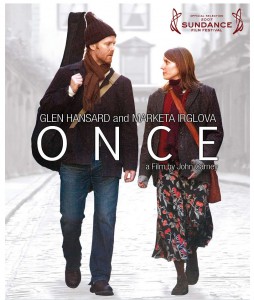 Folk music would probably work best if it didn’t have projected upon it the grand aspirations and bold ideas that have been associated with the genre ever since Dylan broke the scene in the early sixties. From the time of Dylan’s majestic folk anthems, songs of protest and regret at the state of the nation, folk has been considered something of the thinking man’s punk; a genre for the quietly angry to share their grievances with a wider audience. It’s certainly worked – or at least, it did for a while, as Dylan’s protest songs inspired a small generation of activists and casual radicals.
Folk music would probably work best if it didn’t have projected upon it the grand aspirations and bold ideas that have been associated with the genre ever since Dylan broke the scene in the early sixties. From the time of Dylan’s majestic folk anthems, songs of protest and regret at the state of the nation, folk has been considered something of the thinking man’s punk; a genre for the quietly angry to share their grievances with a wider audience. It’s certainly worked – or at least, it did for a while, as Dylan’s protest songs inspired a small generation of activists and casual radicals.
Recent years have seen a revival in folk that seems based less around the anger of the past, and more around the simple love songs that have often taken a backseat in the past. Once is a film that epitomises this new folk scene – a deceptively simple love story produced on the sort of budget most Hollywood directors spend each year on monogrammed toilet-paper. The plot follows the burgeoning romance between a busker (played by The Frames’ Glen Hansard) and a Czech flower (Markéta Irglová) seller on the streets of Dublin. Interspersed with songs that are born naturally out of the situations, the film is a different sort of musical; one that brings to mind the era of Italian neo-realism, where stories of working-class people were played out by non-professional actors often found local to the location of filming itself.
The cast does a great deal for the film – though Hansard had a small part in The Commitments some fifteen years previously, there was almost no acting experience across the board. What results is a film that feels more like real life than anything you’re likely to have seen in a long, long time.
And, of course, there is the music. At times gentle, at others boldly emotional, they manage to break the heart and wrench it in equal measure. Anyone who has heard anything of the soundtrack will know ‘Falling Slowly’, the ballad that won Hansard and Irglová their Academy Award, but the rest of the soundtrack has just as much to offer. Possibly the most beautiful song is ‘Gold’, that performed by Interference at a musician’s party in the film remains one of the few on the soundtrack not written by one of the two stars. ‘Gold’ is, in so many ways, the defining song for Once – not because, as with ‘Falling Slowly’ it is instantly recognisable as related to the film, but because within the context of the plot, the moment that it finds itself formed around, ‘Gold’ best defines the world in which these characters live. It’s still, as most all of the featured songs are, about love, and romance; but sung in a small room with low-lighting, a room filled with music loving, life-loving people, ‘Gold’ is about an ideal. It is about the life these people want for themselves. And, ultimately, this is what Once is about. It’s a film about making decisions, active decisions, to move your life and the lives of those around you toward a better place.
Of all the films that have surrounded themselves with the folk music culture, Once is the logical place to start, because it is Once that best defines the scene as it is today. Perhaps the politics aren’t as present in folk music as they used to be, but that was always just an aspect of the genre. Folk music is about sharing your stories and ideals, about capturing the imagination of your generation, and about pushing towards something better, whether it be in politics, or love, or just living for the right reasons. Once is, in one way or another, about all these things – and all the while it remains a simple love story, too.

2 comments for “The Folk Music Film Club: Once”